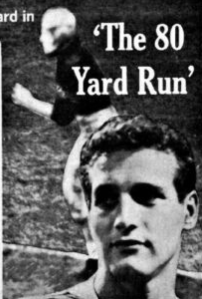
Paul Leonard Newman was an American actor, film director, racing driver, philanthropist, and entrepreneur. He was the recipient of numerous awards, including an Academy Award, a BAFTA Award, three Golden Globe Awards, a Screen Actors Guild Award, a Primetime Emmy Award, a Silver Bear, a Cannes Film Festival Award, and the Jean Hersholt Humanitarian Award.
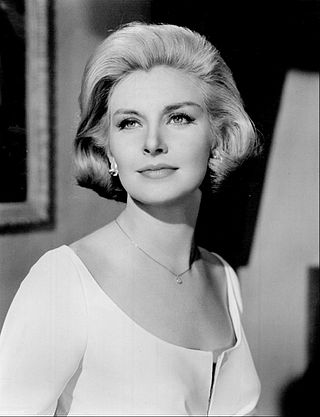
Joanne Gignilliat Trimmier Woodward is an American retired actress. She made her career breakthrough in the 1950s and earned esteem and respect playing complex women with a characteristic nuance and depth of character. Her accolades include an Academy Award, three Primetime Emmy Awards, a British Academy Film Award, three Golden Globe Awards, and a Screen Actors Guild Award. She is the oldest living Best Actress Oscar-winner.

Playhouse 90 is an American television anthology drama series that aired on CBS from 1956 to 1960 for a total of 133 episodes. The show was produced at CBS Television City in Los Angeles, California. Since live anthology drama series of the mid-1950s usually were hour-long shows, the title highlighted the network's intention to present something unusual: a weekly series of hour-and-a-half-long dramas rather than 60-minute plays.

"Bomber's Moon" was an American television play broadcast live on May 22, 1958, as part of the CBS television series, Playhouse 90. It was the 35th episode of the second season of Playhouse 9o.
"The Hidden Image" was an American television play broadcast live on November 12, 1959, as part of the CBS television series, Playhouse 90. It was the fourth episode of the fourth season of Playhouse 90 and the 121st episode overall.
"Tomorrow" was an American television play broadcast on March 7, 1960, as part of the CBS television series, Playhouse 90. It was the 11th episode of the fourth season of Playhouse 90.
"The Big Slide" was an American television play broadcast on November 8, 1956, as part of the CBS television series, Playhouse 90. It was the sixth episode of the first season of Playhouse 90. Red Skelton and Shirley Jones starred in the play about a silent movie star. Skelton was nominated for a Primetime Emmy Award for best performance by an actor. Martin Manulis was the producer, and Ralph Nelson was the director.

"A Town Has Turned to Dust" is an American television play broadcast live on June 19, 1958, as part of the second season of the CBS television series Playhouse 90. Rod Serling wrote the teleplay, and John Frankenheimer directed. Rod Steiger and William Shatner starred.

"Heart of Darkness" was an American television play broadcast on November 6, 1958, as part of the CBS television series, Playhouse 90. It was the seventh episode of the third season of Playhouse 90. The play was adapted from Joseph Conrad's novella, Heart of Darkness.
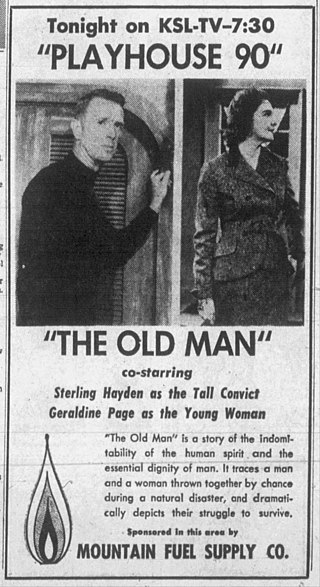
"Old Man" is an American television play broadcast on November 20, 1958, as part of the CBS television series, Playhouse 90. The production, starring Sterling Hayden and Geraldine Page, was adapted by Horton Foote from the short novel "Old Man" by William Faulkner. It was nominated for three Emmy Awards: for most outstanding program of the year; for best single performance by an actress (Page); and for best writing of a single dramatic program one hour or longer (Foote).

"Face of a Hero" is an American television play broadcast on January 1, 1959 as part of the CBS television series, Playhouse 90. John Frankenheimer was the director and John Houseman the producer. The cast included Jack Lemmon and Rip Torn.
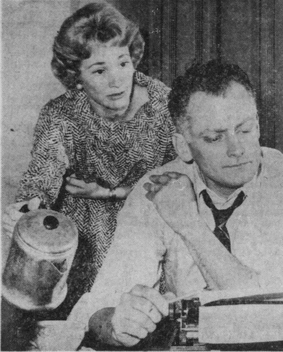
"The Velvet Alley" was an American television play broadcast on January 22, 1959 as part of the CBS television series, Playhouse 90. Rod Serling was the writer and Franklin Schaffner the director. The cast included Art Carney and Leslie Nielsen.
"Nightmare at Ground Zero" is a television play that was broadcast by CBS on May 15, 1958, as part of the television series, Playhouse 90. It was written by Rod Serling and Paul Monash based on the book by John C. Clark and Robert Cahn.
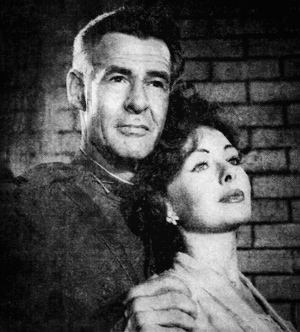
"The Great Gatsby" is an American television play broadcast live on June 26, 1958, as part of the second season of the CBS television series Playhouse 90. David Shaw wrote the teleplay, adapted from the novel of the same name by F. Scott Fitzgerald. Franklin Schaffner directed. Jeanne Crain, Robert Ryan, and Rod Taylor starred, and Rod Serling was the host.
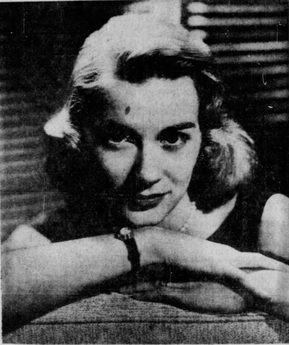
"The Innocent Sleep" is an American television play broadcast live on June 5, 1958, as part of the second season of the CBS television series Playhouse 90. Tad Mosel wrote the teleplay, and Franklin Schaffner directed. Hope Lange, John Ericson, and Buster Keaton starred, and Raymond Burr was the host.

"Point of No Return" was an American television play broadcast on February 20, 1958, as part of the second season of the CBS television series Playhouse 90. Franklin Schaffner directed. Charlton Heston and Hope Lange starred.
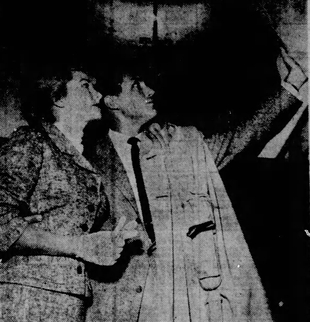
"Panic Button" was an American television play broadcast on November 28, 1957, as part of the second season of the CBS television series Playhouse 90. Rod Serling wrote the teleplay. Franklin Schaffner directed, Martin Manulis was the producer, and Dominick Dunne was the executive assistant. Robert Stack, Vera Miles, and Lee J. Cobb starred.

"For I Have Loved Strangers" was an American television play broadcast on December 19, 1957, as part of the second season of the CBS television series Playhouse 90. Elick Moll wrote the teleplay based on a story by Don Murray and Fred Clasel. Franklin Schaffner directed, Martin Manulis was the producer, and Hedda Hopper hosted. Don Murray and Hope Lange starred. The story was based on Murray's personal experience working with European refugees. Both Murray and Lange donated their salaries from the production to the Homeless European Land Program (HELP) founded by Murray.

"The Last Man" was an American television play broadcast live from CBS Television City in Hollywood on January 9, 1958, as part of the second season of the CBS television series Playhouse 90. Aaron Spelling wrote the teleplay, John Frankenheimer directed, and Paul Newman hosted. Sterling Hayden, Carolyn Jones, and Wallace Ford starred. It was later made into a feature film, One Foot in Hell.
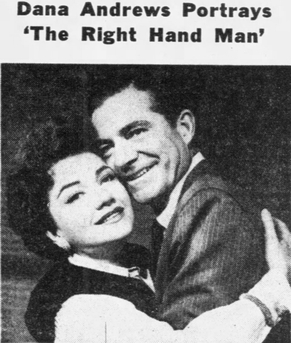
"The Right Hand Man" was an American television play broadcast live on March 20, 1958, as part of the second season of the CBS television series Playhouse 90. Dick Berg wrote the teleplay, as an adaptation of a story by Garson Kanin. Dana Andrews, Anne Baxter, and Leslie Nielsen starred. Franklin J. Schaffner directed. The program was the live dramatic television debut for both Andrews and Baxter.
